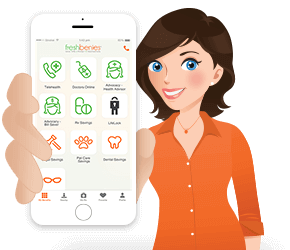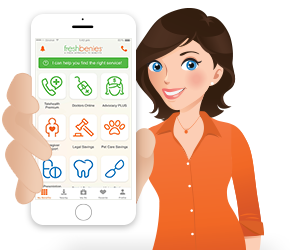4 REASONS YOU MUST READ YOUR EOB
Picture this. You’re at your favorite restaurant with the whole family and they hand you the check. What do you do next? Do you just hand over your credit card without bothering to look it over? Of course not. You carefully review the list to make sure you’re paying for what you ate (and how many glasses of wine Uncle Leo drank). If there’s an entrée on the bill you didn’t order, you wouldn’t pay for it, right?
Same thing when your EOB (Explanation of Benefits) comes in the mail. It’s your insurance company’s snapshot of how a medical bill from your provider was processed.
I have over 20 years experience in medical billing, so it’s easy for me, but I realize an EOB in the mail strikes fear in the heart of most Americans. To help, I’m sharing 4 reasons you need to cowboy up, open that envelope from your insurance company and review that EOB…
1) Was your claim filed to the correct insurance?
Did your insurance change on January 1? The next time you see a doctor, be sure they have the correct insurance info on file. This is important because many insurance companies have shortened the deadline to file a claim (for instance, United Health Care has a 90 day window). If a claim was filed to the wrong company, you’ve lost precious time to file it properly. Since you are ultimately responsible for any charges, you could be left paying more than just your co-pay.
Also, many households have two working members, each with their own insurance policy. To decide which policy is Primary (file first), most insurance companies go by the “birthday” rule. For example, my husband and I both had policies through our respective employers. A few years ago, our daughter had an ER visit, and I made sure to note on the intake form my policy was Primary because my birthday is in January. My husband’s policy was Secondary, because his birthday is in July. He’s older than me (a fact I love to point out), but my policy still came first because my birth month came first. Again, because many insurance companies are tightening up filing deadlines it’s in your best interest to make sure your provider has the correct information. Get it right the first time and you won’t have the hassle of trying to sort out the paperwork later.
2) Was there a mistake on the bill?
According to the Wall Street Journal, there are no comprehensive statistics on medical billing mistakes. However, Stephen Parente, a professor of health finance at the University of Minnesota, has studied medical billing extensively and he estimates that 30% to 40% contain errors. The Access Project, a Boston-based health-care advocacy group, says it's closer to 80%.
Follow me on the journey of a medical bill: the provider’s office sends the medical bill electronically to your insurance company. The insurance company processes the claim in their system and then mails out the EOB. Most of the time, a human being never sees any of this data. It’s up to you to review the EOB to make sure your son didn’t get charged for a mammogram. It happens.

3) Do they match?
One of the best pieces of advice I’ve heard is to open all your mail from providers and insurance companies and “match ‘em up.” First, have a place to store and organize medical bills. Then, when a bill from a provider comes in, match it up to the EOB with the same dates of service/provider to make sure the “amount due” is a match. If there’s a mistake on the provider’s side, call their office and review with their billing manager. If the insurance company made the mistake (processed a claim as out-of-network instead of in-network, etc.) call their member services line to review. Make sure you keep good notes of the dates and times you called, who you spoke to and any reference number you’re given.
4) Not sure if it’s correct?
Unpaid medical bills can be sent to collections and can affect your credit score. So make sure the “Patient Owes” section is correct and you pay the provider the amount due. Not sure if it’s correct? Find a Medical Billing Advocate to help comb through the paperwork for you. You’d be surprised how much money you could save by having your medical bills reviewed for accuracy. Some advocacy companies can help negotiate the bill(s) for you, work with a provider to set up a payment plan, research possible financial aid opportunities, and more.
Now it’s your turn. Do you ignore your EOBs in the mail? Have you ever found an error? How did you handle mistakes on your EOB?















